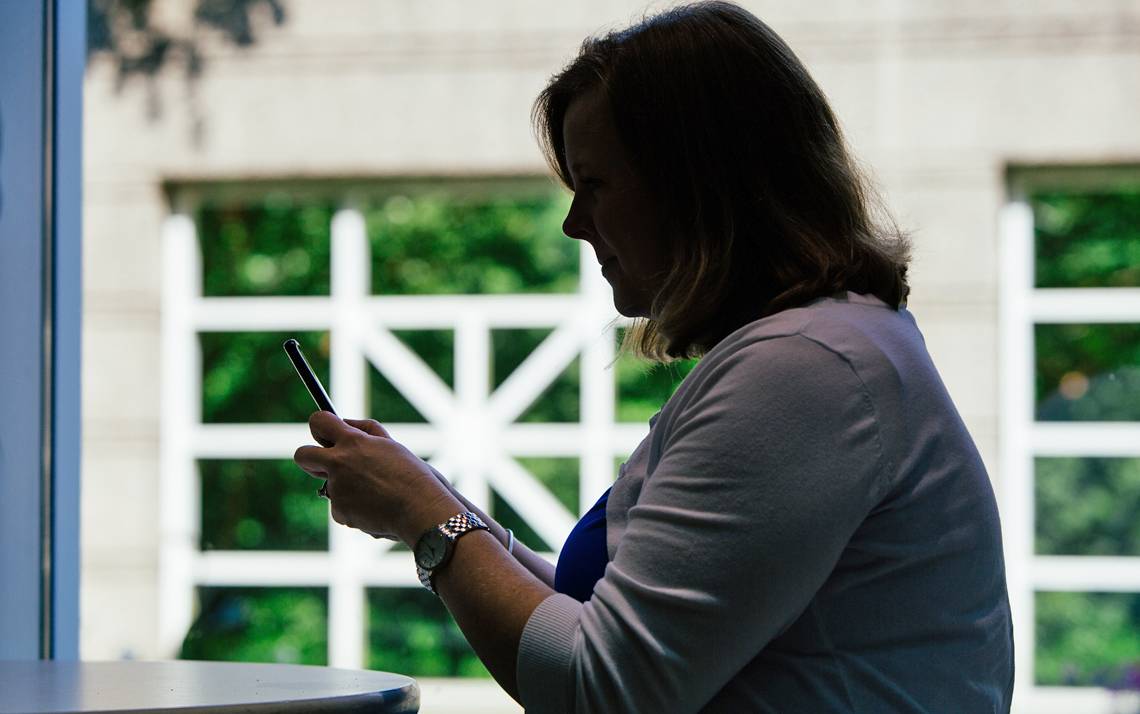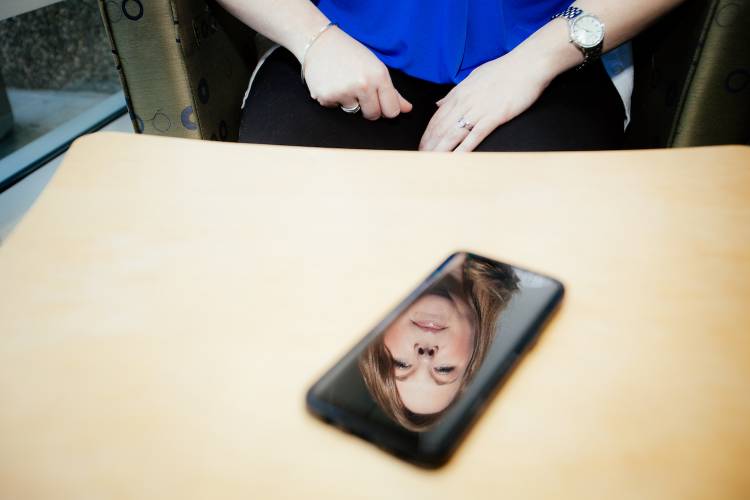How to Ease up on Screen Time
Tips for reclaiming personal time and enhancing well-being

Nailed to a tree near Jessica Burgess’ home is a sign that reads, “look at the beautiful scenery.”
That served as inspiration for Burgess, who turned off most smartphone notifications this year.
 “If my phone doesn’t ring, I try not to look at it,” said Burgess, marketing manager for The Marcus Center for Cellular Cures. “I don’t want to look back on my life and think of everything I missed because my head was down in my phone.”
“If my phone doesn’t ring, I try not to look at it,” said Burgess, marketing manager for The Marcus Center for Cellular Cures. “I don’t want to look back on my life and think of everything I missed because my head was down in my phone.”
Americans check their smartphones an average of 80 times a day, according to a 2017 study by Asurion, a global tech company. The survey also found that 60 percent of respondents experience stress when their phone is out of reach.
Dr. Jonathan Bae, associate chief medical officer for Patient Safety and Clinical Quality and co-convener of the Mental & Emotional Health and Well-Being working group for Healthy Duke, said too much time on smart devices can negatively impact mood and relationships.
“You’re losing out on real-life social connections you have with people,” he said.
Looking to reclaim your time? Here are three ways.
Out of sight, out of mind
Katie Jansen’s dog, Celsius, is a good indicator for how much Jansen looks at her phone. The Australian shepherd mix mopes around the house when he doesn’t get attention. The dog’s behavior was enough for Jansen and her partner, Alex, to institute tech-free weekends.
Alex and Jansen, a clinical research communications specialist at the Duke Clinical Research Institute, leave their phones behind when they go on hikes, eat dinner and hang out in the backyard.
“I could get sucked into Instagram and not realize 20 minutes passed,” Jansen said. “We should have conversations that aren’t centered around what we’re scrolling through on social media.”
Silence the ringer
Jonathan Bae was in a meeting when his phone started vibrating with incoming emails. A colleague was concerned.
“You’re going to lose your mind if you let that keep happening,” he told Bae.
Bae did away with email notifications.
“It kept me from being in the present,” he said.
If people need to reach him quickly, Bae encourages them to call or text.
Keep your phone out of the bedroom
 Katie Jansen would spend up to an hour in bed scrolling through apps and responding to text messages.
Katie Jansen would spend up to an hour in bed scrolling through apps and responding to text messages.
“All this information processing in my mind kept me from sleeping,” said, Jansen, who now puts her phone out of reach 30 minutes before bed.
Tom Szigethy, Duke Student Wellness Center director, said screens give off a blue light similar to a sunrise, inhibiting production of melatonin, which helps you fall asleep.
“It’s like giving ourselves low doses of caffeine,” he said.